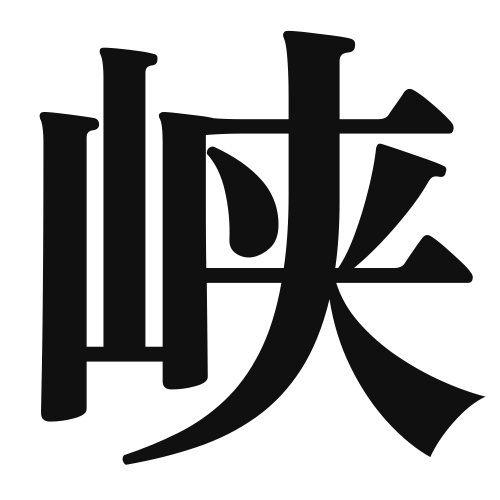1. Overview of Meaning
The kanji “峡” (kyō) means “gorge” or “ravine.” It refers to a narrow valley between mountains, often characterized by steep sides and a river flowing through it.
2. Formation and Radical
Formation of the Kanji: The kanji “峡” is a compound character that combines elements to convey its meaning. It consists of the radical “山” (mountain) and the phonetic component “夭,” which contributes to its pronunciation.
Radical: The radical of “峡” is “山,” which signifies mountains or hills, reflecting the geographical context of the term.
3. Examples of Usage
Common Words and Phrases: Some frequently used words that include “峡” are “峡谷” (kyōkoku – gorge) and “峡谷美” (kyōkoku-bi – beauty of the gorge).
Example Sentences in Daily Conversation:
- 「あの峡谷はとても美しいです。」(That gorge is very beautiful.)
- 「峡を渡る橋があります。」(There is a bridge that crosses the gorge.)
4. Synonyms and Antonyms
Similar Kanji: A similar kanji is “谷” (tani), which means “valley.” While both refer to low-lying areas between mountains, “峡” specifically denotes a narrow and steep-sided gorge.
Opposite Kanji: An antonym could be “平原” (heigen), meaning “plain,” which refers to flat, level land as opposed to the steep and narrow nature of a gorge.
5. Cultural and Historical Background
Relation to Japanese Culture: The concept of “峡” is significant in Japanese culture, often associated with natural beauty and scenic landscapes. Many famous tourist spots in Japan feature gorges, attracting visitors for their breathtaking views.
Proverbs and Idioms: One relevant proverb is “山は山、峡は峡” (Yama wa yama, kyō wa kyō), which emphasizes the uniqueness of different landscapes and the importance of appreciating each for its distinct beauty.
